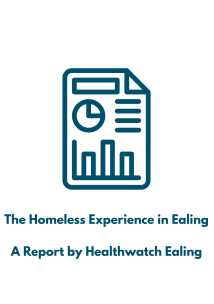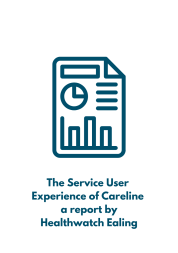Homelessness Report
people experiencing homelessness (rough sleepers, in sheltered accommodation
etc.), using a mixed method qualitative and quantitative interview approach
combining surveys and interviews to gather both numerical data and personal
stories.

What we found:
▪ Discrimination in Healthcare: 80% of people said they were treated differently by NHS staff because they did not have a fixed address.
▪ Worsening Health: 60% of people told us their mental and physical health had declined over the past year. This was often linked to poor living conditions and difficulty accessing healthcare services.
▪ Heavy Reliance on Charities: Many people said that support from third-sector organisations — such as charities and community groups — was essential for accessing NHS care. These organisations helped by offering guidance, acting as mailing addresses, or helping make appointments.
▪ Widespread Isolation: 83% of those we spoke with felt lonely or isolated. This was especially common among asylum seekers staying in hotel rooms with little opportunity for social connection.
▪ Confusion About GP Registration: Nearly one-third (30%) of participants didn’t know how to register with a GP. Many believed they needed ID, proof of address, or previous medical records, which is not required under NHS guidance. The average duration of homelessness was 2.24 years, with causes ranging from asylum-seeking to job loss and mental health issues. Whilst some reported health improvements due to third-sector support, many barriers remain in place.
Our recommendations:
➢ Provide clear training for NHS reception and GP staff so they understand who can register and what documents are (and are not) required.
➢ Strengthen collaboration between NHS and third-sector organisations through dedicated communication lines and shared understanding.
➢ Create a task force to improve continuity of care, especially for people who are moved between areas.
➢ Support social connection and wellbeing in temporary accommodation, such as running community activities in hotels for asylum seekers.
➢ Offer pathways into work, training, or volunteering to help individuals find purpose, build confidence, and reduce long-term homelessness.
➢ Ensure that mental health teams and third-sector organisations work together to raise awareness of available mental health services.

